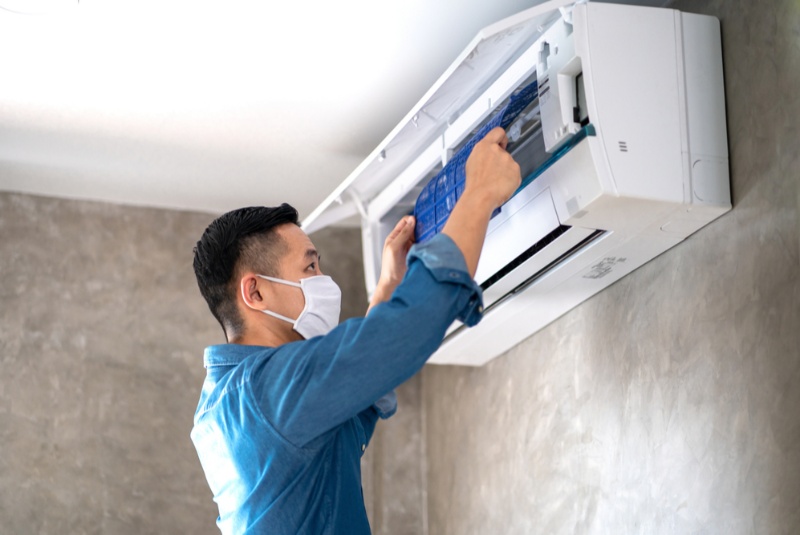Home appliances are essential for the smooth running of any household. However, they can also contribute significantly to our monthly energy bills and may require costly replacements when they break down. In this article, we will explore various tips and strategies to help you save money on appliances by increasing their energy efficiency and extending their lifespan.
- Choose Energy-Efficient Appliances
When purchasing new appliances, prioritize energy-efficient models. Look for products with the ENERGY STAR label, which indicates that they meet strict energy efficiency guidelines set by the U.S. Environmental Protection Agency (EPA) and the Department of Energy (DOE). These appliances typically use 10-50% less energy and water compared to standard models, helping you save on your energy bills and reduce your carbon footprint.
- Regular Maintenance
Regular maintenance is crucial to keep your appliances running efficiently and to extend their lifespan. Make sure to clean and inspect your appliances regularly, following the manufacturer’s guidelines. Key tasks include:
- Cleaning refrigerator coils and checking the door seals
- Cleaning the lint filter in your dryer and inspecting the vent for blockages
- Descaling your dishwasher and washing machine regularly
- Inspecting and replacing worn belts and hoses in your appliances
- Use Appliances Strategically
You can save money on appliances by using them more efficiently. Some strategies include:
- Running full loads in your dishwasher and washing machine to maximize their energy and water efficiency
- Using the cold wash cycle on your washing machine to save on heating costs
- Drying clothes on a clothesline or drying rack when possible, instead of using the dryer
- Using the microwave, toaster oven, or pressure cooker instead of the oven for smaller meals, as they use less energy
- Turning off the heat-dry setting on your dishwasher and letting dishes air-dry instead
- Opt for Smart Appliances
Smart appliances can be more energy-efficient and offer better control over energy consumption. Many of these appliances can be controlled remotely using a smartphone app, allowing you to monitor and adjust settings for optimal energy usage. Some smart appliances can also detect when electricity rates are lower and automatically schedule their operation during these periods, helping you save on your energy bills.
- Keep Appliances Clean
Keeping your appliances clean can improve their efficiency and extend their lifespan. For instance, a dirty oven can take longer to heat up and may use more energy, while a clogged dishwasher can lead to longer wash cycles and higher water consumption. Regularly clean your appliances according to the manufacturer’s instructions to maintain their efficiency.

- Unplug Appliances When Not in Use
Even when turned off, many appliances continue to draw energy in standby mode. To save money, unplug appliances like coffee makers, toasters, and chargers when they’re not in use. Alternatively, you can use power strips with built-in surge protectors and timers to automatically switch off appliances at specific times or when they are not in use.
- Invest in a Home Energy Audit
A professional home energy audit can help identify areas where you can save money on appliances and other energy expenses. Energy auditors can recommend specific energy-efficient appliances, assess your home’s insulation and ventilation, and suggest other improvements to reduce your energy consumption. Many utility companies offer free or discounted energy audits, so check with your local provider to see if this service is available.
- Repair, Don’t Replace
When an appliance breaks down, consider repairing it instead of immediately purchasing a new one. In many cases, repairs can be more cost-effective than buying a new appliance, especially if the issue is relatively minor. If you’re unsure whether to repair or replace, consult a professional technician for advice.
- Buy Appliances at the Right Time
Look for discounts and sales when shopping for appliances. Retailers often offer significant savings during major holidays, such as Black Friday, Memorial Day, and Labor Day. Additionally, consider purchasing floor models or slightly damaged appliances, as these can come with substantial discounts. Be sure to research the warranty and return policy before making your purchase.
- Consider Extended Warranties
While extended warranties can be an added expense, they may save you money in the long run. If an appliance is prone to breakdowns or has a history of costly repairs, an extended warranty can provide peace of mind and financial protection. However, not all extended warranties are worth the investment, so weigh the potential benefits and costs before making a decision.
- Dispose of Old Appliances Responsibly
When it’s time to replace an old appliance, consider recycling it instead of simply throwing it away. Many appliances contain valuable materials that can be recovered and reused, reducing waste and environmental impact. Additionally, some utility companies and recycling centers offer rebates or incentives for recycling old appliances, which can help offset the cost of your new appliance.
Saving money on appliances is not just about finding the best deals; it also involves making smart decisions about energy efficiency and appliance longevity. By choosing energy-efficient models, maintaining and using your appliances wisely, and repairing rather than replacing whenever possible, you can significantly reduce your energy bills and extend the life of your appliances. These tips can help you make informed choices and get the most value out of your home appliances, all while contributing to a more sustainable and eco-friendly lifestyle.




